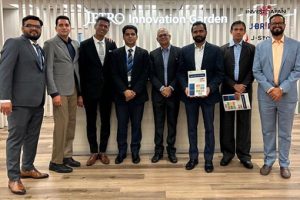A recent study conducted by Dell reveals that 90% of Singaporean IT and business decision-makers anticipate a future where generative artificial intelligence (AI) plays a pivotal role. However, despite the optimism surrounding emerging technologies, some organizations admit they are not yet prepared for the impending changes.
While 87% of respondents feel well-positioned competitively and have solid integration strategies for AI, a significant portion express uncertainty about their industry’s future (36%) and anticipate struggling to keep pace (43%). Key challenges hindering innovation include data privacy and cybersecurity concerns (44%), talent shortages (38%), and outdated technology environments (28%).
Nevertheless, the study indicates a growing recognition of the potential benefits of adopting generative AI. Nearly half of the respondents believe it can enhance IT security posture (49%), streamline processes by improving customer experience (48%), and provide productivity gains (47%).
However, concerns about security and privacy persist, with 66% fearing that generative AI could introduce new issues in these areas. Additionally, 77% feel that their data and intellectual properties are too valuable to be entrusted to generative AI systems.
Despite these challenges, 47% of organizations have already begun implementing generative AI. As adoption increases, discussions about the associated risks and responsibilities emerge. A significant majority (81%) agree that organizations are ultimately responsible for any AI malfunction or undesired behavior.
Andy Sim, Vice President and Managing Director, Singapore, Dell Technologies, emphasizes Singapore’s role as a hub for AI adoption and development. He underscores the importance of trusted partnerships to establish secure and scalable technology foundations for innovation, emphasizing sustainability.
Outside of AI, cybersecurity remains a top concern, with 75% of respondents reporting impacts from security attacks in the past year. The majority are pursuing Zero Trust deployment strategies (88%) and have Incident Response Plans in place (80%) to recover from cyberattacks.
The study surveyed 6,600 respondents globally, including 200 from Singapore, across various industries. It underscores the need for organizations to address challenges while embracing the transformative potential of generative AI and ensuring robust cybersecurity measures.






















